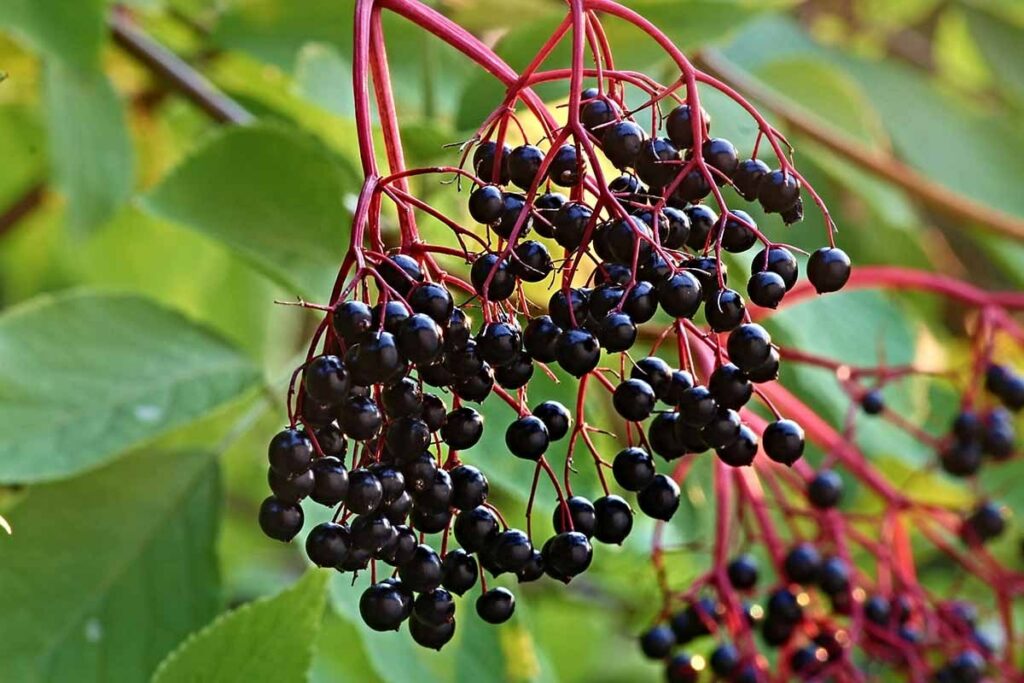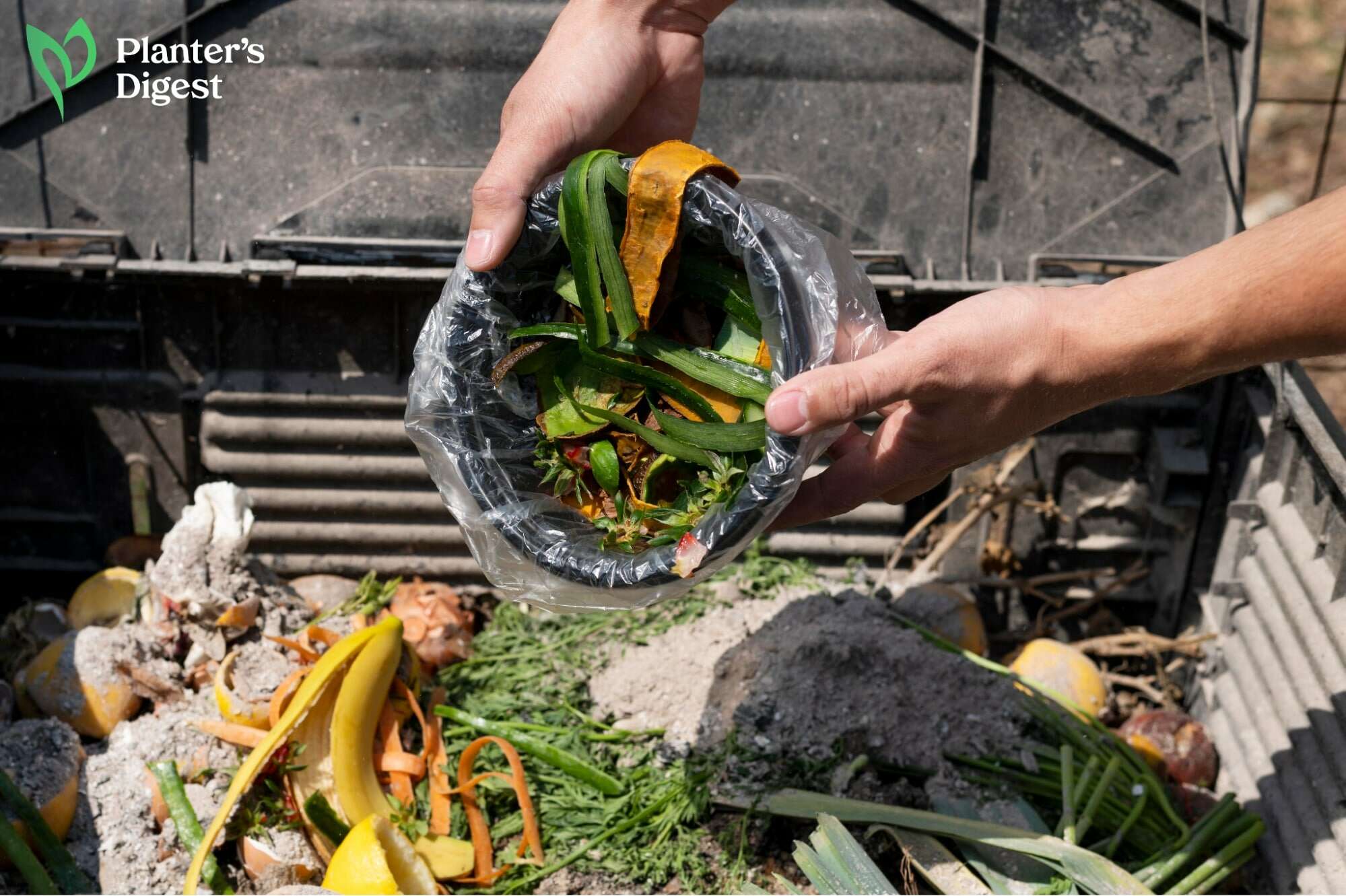
The best way to keep your garden 100% healthy is to go fully organic, even in the fertilizers you use.
But this leaves you choosing between the market’s two most common organic fertilizers – manure and compost.
Don’t worry; we’re here to narrow it down and tell you which is better for every garden activity you plan. Read on to know!
What is compost?
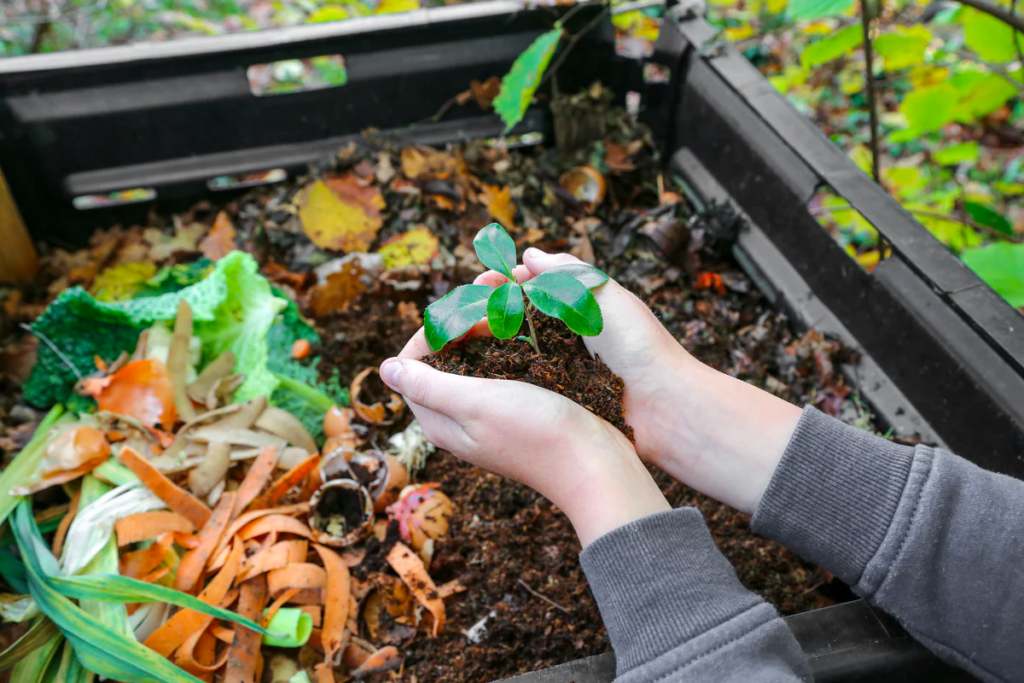
Compost refers to decomposed organic matter such as food scraps, dead plants, coffee grounds, and other organic garden waste. These organic materials become useful soil amendments with proper heat and aeration.
Composts function by adding nutritional content to the soil and encouraging the reproduction of healthy bacteria to help the plant grow.
In a nutshell, here are the advantages and disadvantages of using compost.
| Advantages | Disadvantages |
| Neutralizes soil | Needs outdoor space |
| Processes organic yard waste | Attracts pests |
| Reduces erosion | Produces foul odor |
| Used as a slow-release fertilizer | Can cause a nutrient imbalance |
| Feeds good bacteria | |
| Reduces food waste |
Compost is also good mulch material. Adding it to the topsoil helps improve the texture and the ability to hold moisture in the soil.
Compost can also increase the soil’s water retention and filtration capacity, making it an excellent garden bed for growing plants. Healthy compost also protects plants from bacteria and other diseases.
What’s excellent about compost is that you can practically reuse kitchen waste and reduce greenhouse gas emissions.
However, cost-wise, composting is more expensive than dealing with manure. You’ll have to invest in tarps, large bins, and thermometers to maintain the proper conditions for the organic matter to decompose.
| Planter’s Tips: • Use a mixture of green and brown debris. Create a healthy compost pile by mixing green materials like grass clippings and plant debris with brown materials such as sawdust, hay, straw, or wood ash. A balanced compost will prevent the increase of nitrogen in your compost pile. • Aerate the compost pile weekly. Get enough oxygen and moisture circulating in your compost pile by aerating them with a shovel or rake at least once a week. Use a garden hose, sprinkler, or humidifier on your compost pile to provide enough moisture. |
What is manure?

Manure is the byproduct of farm animals such as chickens, pigs, sheep, goats, horses, and even alpacas. They are sourced from these livestock animals’ feces, spilled feed, runoff, and urine.
One of the most common manure used in vegetable gardens is horse manure because they’re the most abundant and easy to harvest. One horse can produce 55 pounds of waste every day.
At a glance, here are the pros and cons of using manure in your garden.
| Advantages | Disadvantages |
| Supports soil structure and plant growth | May cause soil-borne diseases |
| Adds nutrients to the soil | Can contain weed seeds |
| Cheaper than other fertilizers | Slow composting process |
| High in NPK | Produces bad odor |
| Raises soil pH level |
Manure requires a large area where it can decompose freely, but the good thing is that it changes its environment in a good way.
The longer the manure sits there, it increases not only the nutritional content of the soil but also its water and filtration capacity.
Unfortunately, manure produces pungent small like in a petting zoo. You’ll also have to filter out contaminants like weed seeds, E. coli, and salmonella before using manure.
It involves a lengthy hot composting process until high temperatures kill these harmful bacteria.
| Planter’s Tips: • Stay away from sick animals. Don’t use manure from disease-infected farm animals. The bacteria or fungi can spread to the area’s crops, soil, and other animals. • Use manure from the bottom pile first. Using the bottom pile of the manure prevents it from going bad and also gives the top pile more time to grow healthy bacteria before use. |
What is the difference between compost and manure?

Compost and manure mainly differ in origin. Compost comes from organic matter like food waste, grass clippings, and plant debris, while manure comes from animal waste – feces and urine of livestock animals.
Although both compost and manure supply essential nutrients to the soil and plants, they also differ in nutrition, speed, and mineral content.
Let’s understand each of these differences.
1. Nutritional Difference

The nutritional content of fertilizers is measured through the number of macronutrients they have – Nitrogen (N), Phosphorus (P), and Potassium (K).
Manure leaves the soil’s pH level between 8 and 12, while compost keeps the soil neutral with pH levels between 6 and 8.
Let’s use horse manure to illustrate the difference from compost since it is the most common, abundant, and easiest to harvest from farm animals.
| Nitrogen (%) | Phosphorus (%) | Potassium (%) | |
| Alpaca Manure | 1.5 | 0.7 | 1.1 |
| Chicken Manure | 1.1 | 0.8 | 0.5 |
| Chicken Manure Pellets | 4 | 2.5 | 2.3 |
| Cow Manure | 0.6 | 0.4 | 0.5 |
| Horse Manure | 0.7 | 0.3 | 0.6 |
| Pig Manure | 0.8 | 0.7 | 0.5 |
| Rabbit Manure | 2.4 | 1.4 | 0.6 |
| Sheep Manure | 0.7 | 0.3 | 0.9 |
| Garden Compost | 0.5 | 0.3 | 0.8 |
As you can see from the figures above, horse manure has more nitrogen than compost. This means that it is more capable of encouraging the growth of roots in a plant because of its higher acidity level.
Manure’s nitrogen is carried through ammonia (ammonium nitrate), making it easier for the plant’s roots to absorb nutrients in slightly acidic soil conditions.
If you want to prevent ammonia burns on your plant, your safest bet is garden compost since it has the lowest percentage of nitrogen content.
2. Speed of Nutrient Release
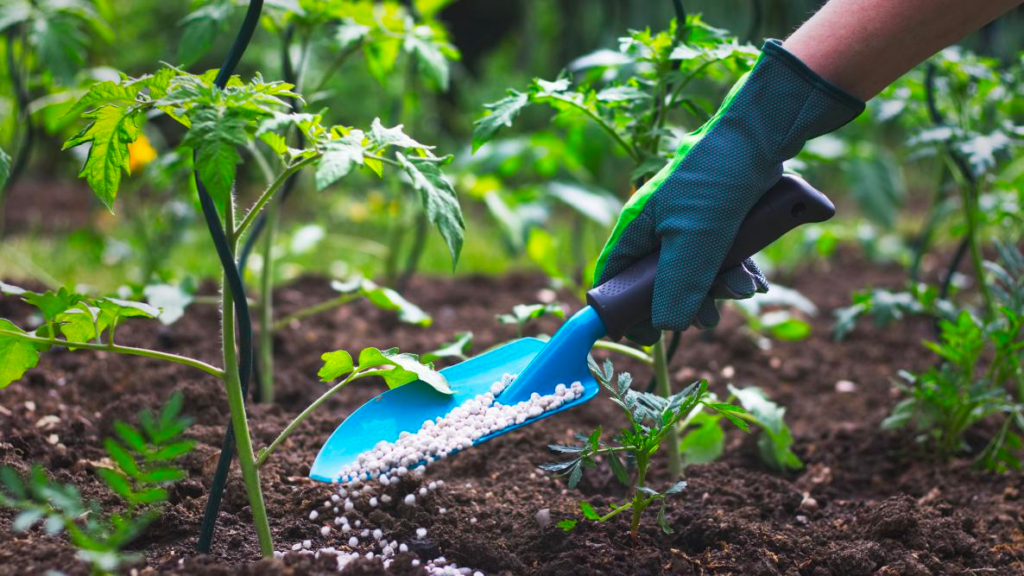
Manure releases nitrogen faster than compost. It’s a fast-acting fertilizer compared with compost, which is usually a slow-release fertilizer with less impact on the plant’s roots.
The high acid content of manure allows it to boost overall plant health and the nutrient uptake of the roots of the plant, making it a more effective plant support than compost.
3. Mineral Difference
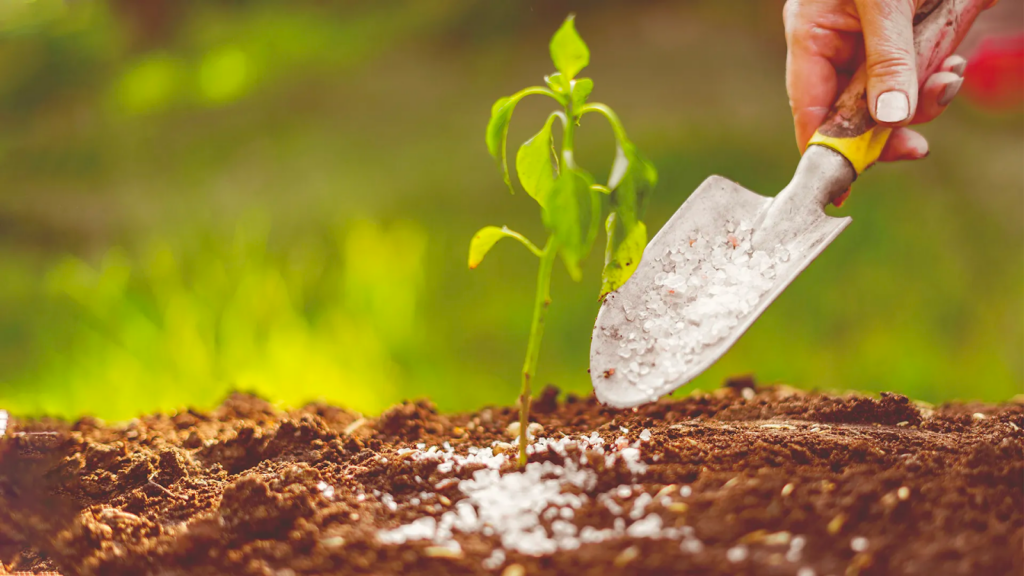
When comparing compost and manure, micronutrients such as magnesium, calcium, and sulfur should also be considered.
Composts have a limited supply of these, while manure from birds and mammals contains high quantities of these micronutrients.
High mineral values are beneficial for lettuce and spinach. However, excessive manure can also cause burned roots for most vegetables because of the high amount of calcium, ammonia, and sulfur.
You can allow fresh manure to rot fully before applying it to the soil to prevent suffocating your plants with ammonia and sulfur.
Compost or manure – which is better for your garden?
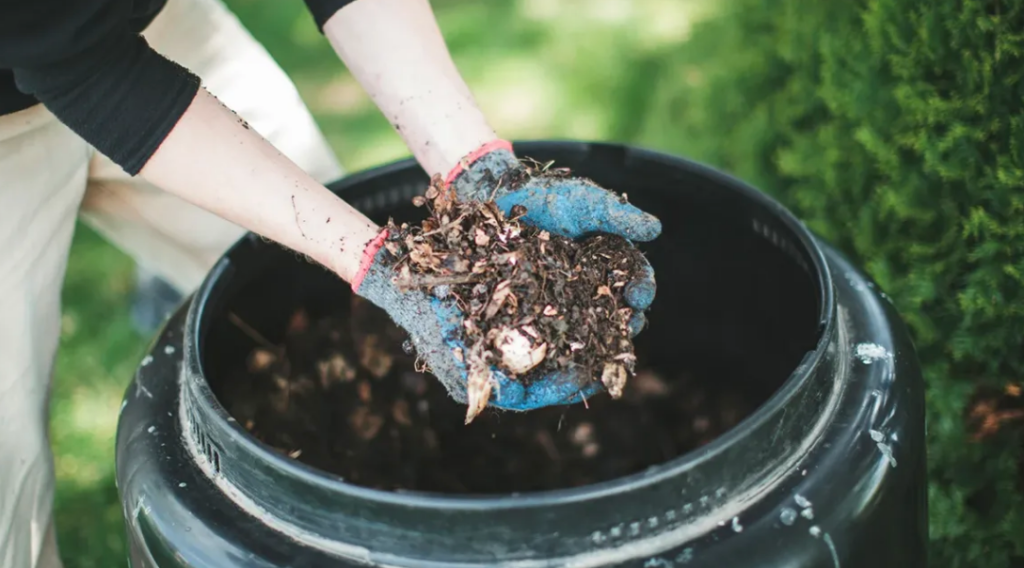
Compost is the better choice for gardens. They not only transform waste into a beneficial gardening tool, but it’s also safer to use.
For starters, compost has an earthy smell than manure. Compost also requires less space, only a large compost bin, than composting manure.
Manure also tends to carry E. coli and other harmful bacteria, so you’ll need to hot compost it longer. Failure to do so will leave infected crops and cause human kidney failure or food poisoning.
It will also take a while before manure can provide the necessary nutrients like nitrogen because its uptake depends on the microbes that must decompose the organic matter in waste.
By application, only 30 to 50% of the organic nitrogen is available for nutrient production during the first year of applying manure in a plant.
Manure or Compost: What and When to Use

| Compost | Manure | |
| Plant Type | • Root vegetables • Starting seedlings • Annual fruits | • Salad crops • Beans and grains • Sweetcorn • Squash • Potatoes |
The use of manure or compost in your garden depends entirely on the type of plant that you want to grow.
Compost is best used for planting root vegetables and starting seedlings. Manure can come too strong for these tender plants.
Compost is also preferred by annual fruits such as cucumbers, aubergines, peppers, and tomatoes. These fruiting plants need less nitrogen from manure and more phosphorus and potassium for fruiting, which they can get from compost.
On the other hand, manure is an excellent mulch for vegetable gardens. It’s best planted in the garden bed during spring to improve soil health.
Salad crops love having manure in their soil once a week. It provides them with the nutrients they need to grow their leaves.
Manure is also an excellent starter fertilizer for squash, beans, and sweetcorns. These fast-growing annual plants need to establish healthy root systems, and many leaves and manure’s high nitrogen content will boost their growth.
How do you use manure in a vegetable garden?

Manure has long been used to keep vegetable garden soil healthy.
But before adding them, we have to make sure it’s safe to add to the soil by eradicating and containing harmful bacteria.
Hot composting is commonly used to remove contaminants like E. coli and salmonella from manure. It can also contain weed seeds, especially when the feces comes from plant-eating animals.
Gardeners also suggest avoiding using dog, cat, or pig manure because their waste most likely contains parasites that can stay on the soil and infect humans later on.
In this process, high heat is applied over the manure for weeks to kill these bacteria. The manure pile’s internal temperature should be maintained at 131 to 170°F for 3 days.
Once these contaminants are controlled, manure can be safely used in your vegetable garden.
It’s recommended that manure be tilled into the soil during the fall season. As a soil amendment, it introduces essential plant nutrients like nitrogen, potassium, and phosphorus to the soil.
Manure is most helpful in sandy soils because they also help improve sand’s water-holding capacity and filtration ability.
FAQs on Compost and Manure
Manure works faster in helping plants grow and develop parts because of its higher nitrogen content.
Although they are used as soil amendments, compost and manure are different. Compost comes from decomposed organic matter, while manure comes from animal waste.
Sheep manure is the best manure because it is an excellent soil improver and conditioner. It also contains a high amount of potassium which strengthens the cell walls of plants.
Manure comes from animal waste, while fertilizers are chemicals added to the soil to increase its fertility.




